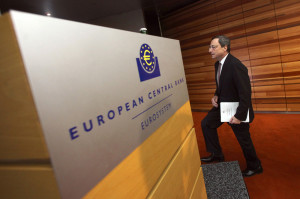ECB cites urgent need to harmonise crypto banking regulations
The European Central Bank is drawing attention of the member states of the European Union about the need to harmonize regulations for cryptocurrencies.

According to its latest supervision newsletter, the ECB was concerned about possible regulatory overlap between the respective regulators and banks handling cryptocurrencies. To that end, the ECB works closely with the national supervisors to ensure a consistent approach, highlighting the difficulties of introducing efficient oversight of the rapidly evolving sector.
“Crypto-asset markets are developing apace, with banks considering whether to get involved, and it is the role of the European Central Bank – as the authority in charge of banking authorisations in European banking supervision – to ensure they do so safely and soundly, while respecting the above principles,” the statement reads.
The regulator pointed out that there is currently no harmonised regulatory framework governing crypto-asset activities and services in the EU. But this will change as officials prepare to implement the “Markets in Crypto-Assets” framework, or MiCA. The ECB is also taking steps to harmonise the assessment of licensing requests.
In June, the three principal decision-making bodies of the European Union agreed a sweeping package of standards to bring cryptocurrency issuers and service providers within their jurisdictional control under a single regulatory framework.
However, the ECB further explains, national frameworks governing crypto-assets diverge quite extensively. In Germany, which has been the most proactive in regulating the sector, certain crypto activities are subject to a banking licence requirement. Several banks have already applied for special licences under German banking law to conduct these licensed activities.
The move also comes in anticipation of an EU-wide regulatory framework that will grant passporting rights for crypto firm working across the continent. Set to go into effect in 2024, the proposal offers a bespoke legislative regime for markets in crypto-assets (dubbed ‘MiCA’) and relevant service providers not covered elsewhere in the EU financial services regime.
The development comes nearly two years after the European Commission published the first EU legislative framework for crypto assets, which was as part of the broader policy initiative on digital finance. In addition, the MiCA will offer a pilot regime for crypto-related market infrastructures, which represents a so-called ‘Sandbox’ approach. The term has particular relevance for the crypto industry, and the EU scheme was described as a controlled environment under which new firms or new ventures from established brands would be able to live test their ideas.
Nevertheless, European regulators have yet to stake out the DeFi territory and its various applications. Recent news coverage has also highlighted the emergence of Non-fungible Tokens (NFTs). That said, the regulation of these transformative technologies is blurry. There is no such federal agency that has clear authority over a particular DApp, NFT, or even the entire industry.









